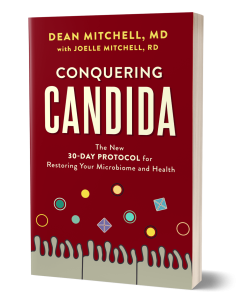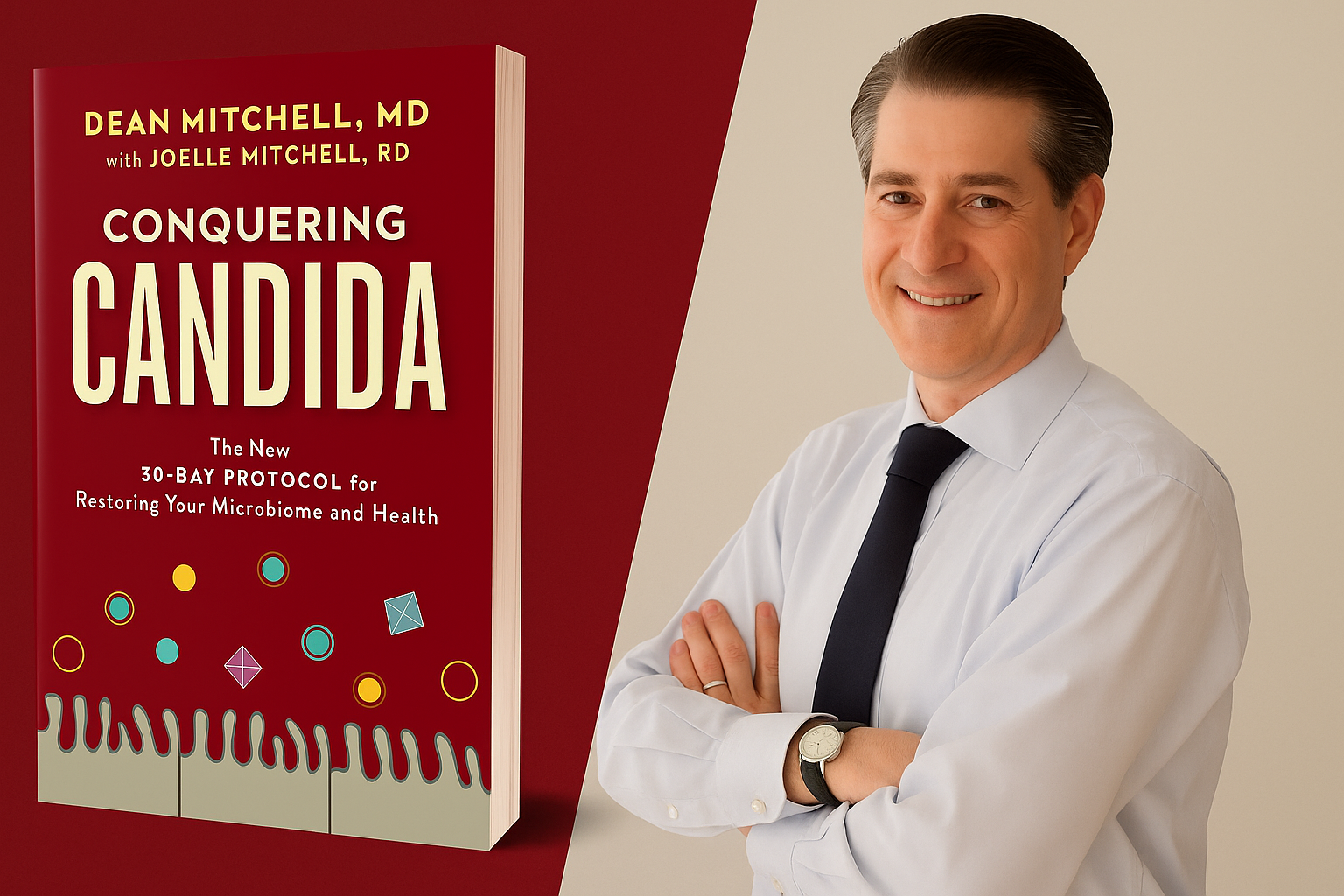Fatigue can be debilitating and cause anxiety, and unfortunately, many doctors and
patients struggle to identify the cause. In my years as a practicing immunologist, I have seen
what happens when doctors and patients treat symptoms without identifying and addressing the
underlying causes. My professional curiosity has led me to understand that good detective work
and a multi-pronged approach are key to a patient’s relief.
Mike was a lanky, athletic college student who felt his health had spiraled downward. He
was on the college varsity hockey team and believed his long practices that led to intense
sweating were causing his terrible facial acne. He consulted a local dermatologist, who treated
him with a tetracycline antibiotic for several months. Mike’s acne started to clear, but within a
few months on the antibiotics, he experienced abdominal bloating and frequent loose stools. He
also noticed a white coating on his tongue and a rash in his groin. What became even more
debilitating for Mike was that he had been developing brain fog and was chronically fatigued.
Because Mike was exhausted, he found it almost impossible to complete his college
coursework, and he had to curtail his hockey activities. So, he went to a primary care doctor, who
did routine blood testing and told him that everything was normal. Feeling frustrated, Mike
turned to the internet and began reading up on his symptoms. He became convinced that his
problem was Candida overgrowth. Mike read that he needed to change his diet: no sugar, no
dairy, no wheat, and no alcohol. So, he cut out bagels, sandwiches, cookies, and cakes, along
with the weekend beer and pizza nights, hoping this would cure his condition.
Mike initially noticed some improvement with his diet changes, but not enough to make the sacrifice of
missing out on fun with his friends. He finally realized he needed professional help, so he went
back to the internet and learned about my functional medicine practice that specializes in
Candida. When I saw Mike in my office, he looked dejected. He thought that by cutting out sugars
and foods that quickly turn to sugar (think pizza dough), he had done everything to help himself.
Yet he couldn’t shake the brain fog or chronic fatigue. After taking his history, I told Mike he had
Stage 4 Candida. Stage 1 is the gastrointestinal stage, in which patients experience bloating along
with abdominal pain from diarrhea or constipation. Stage 2 is when they develop rashes like jock
itch, hives, or vaginitis. Stage 3 is when brain fog sets in, and in Stage 4, an individual gets hit
the hardest: developing chronic fatigue. I told Mike not to give up hope that he could definitely
be helped.
To put Mike’s situation in perspective, he is not alone in being challenged to find a doctor
who could diagnose and treat him effectively. Candida overgrowth has been a controversial
diagnosis for a long time. Many conventional physicians believed it was a made-up illness that
existed only in the patient’s mind. Candida, a type of yeast, is normally found in the gut
microbiome of healthy individuals, but when certain factors are introduced, it can overgrow.
Over time, Candida overgrowth can cause chronic fatigue.
The risk factors for Candida overgrowth are straightforward: I have a 15-question list I
review to determine whether a patient is at risk for it. In Mike’s case, his long-term use of the
antibiotic tetracycline, along with his high-carbohydrate diet and alcohol consumption,
contributed. Candida feeds on glucose, so if you eat large amounts of sugar, your body will form
excessive amounts of acetaldehyde, which causes muscle fatigue.
However, because Mike’s Candida had advanced to Stage 4, diet alone couldn’t reverse
his symptoms. He needed rebalancing of his microbiome, which I was able to do with a
combination of antifungal medications, sublingual immunotherapy that uses the Candida protein,
and vitamin treatments. I’ve learned that the latter is critical to avoiding the dreaded Herxheimer
or “die-off” reaction, which initially causes even more fatigue initially until the patient’s
microbiome is rebalanced.
Mike followed my program diligently, and after several months, he noticed his brain fog
had cleared, his energy levels were back to where he could practice with the hockey team
regularly, and his bloating and constipation had gone away. Now that he knows what contributes
to Candida, he can avoid the microbiome imbalance that caused him so much trouble.
Finding the underlying cause of chronic fatigue is very challenging, as the culprit could
range from vitamin deficiencies to anemia to autoimmune diseases to a combination of issues.
A thorough medical evaluation is necessary to rule out other treatable conditions, but unfortunately,
Candida overgrowth has been excluded from this list for too long. It’s time for it to be recognized
and treated appropriately. No one should have to deal with the stress of feeling exhausted and ill
and not knowing what to do to regain their health and energy.

(Get the book Conquering Candida on Amazon)
Author notes: As a podcast host and published author, Dr. Dean Mitchell blends conventional and integrative
care to treat root causes and educate patients on lasting wellness solutions. His new book,
Conquering Candida, will be available in November 2025.
Learn more at www.MitchellMedicalGroup.com





